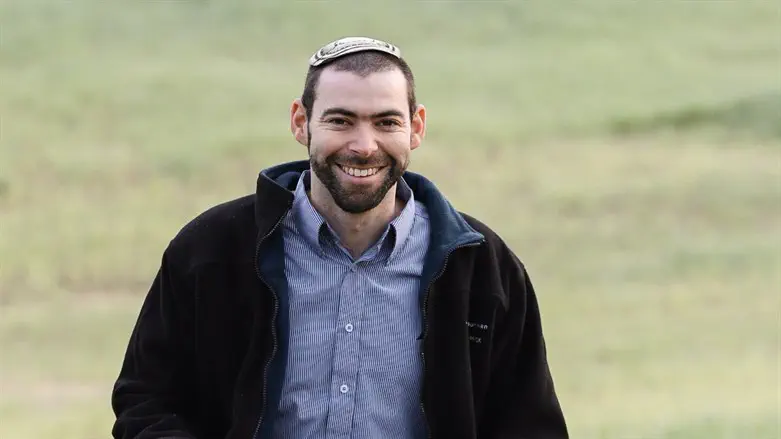
At times, when a person may feel stuck in life or isn't moving in the correct path, can try and take a glimpse at himself from the outside, looking in. Some would consider that helpful to view and analyze his situation, perhaps even using humor in order to correct his mistakes.
Bilam tries to curse the Nation of Israel, and eventually finds himself blessing them. On his way to do so, Bilam's female donkey sees an angel of G-d, and Hashem opens the donkey's mouth and she speaks to Bilam.
What was the need for this miracle of opening the donkey's mouth to speak (It is clear to me that Shrek copied the idea from us...)? Wasn't there another way to hint to Bilam that he should not curse the Jewish people?
Why even have such a miraculous event placed into the middle of our story?
Looking at it closely, the opening of the donkey's mouth teaches us the basic lesson of the entire story. It is not just a little detail in this episode, but rather it touches on the heart of the matter.
Opening the Shut, and Shutting the Open
There are many reasons given, but we will try with the simple explanation first, one brought by the Ramban (Balak, 22:23). He posits that the purpose of the miracle was to show Bilam who controls speech. Bilam thinks that the power to say whatever he wants is in his own control, and therefore he may curse the Nation of Israel. The speaking donkey shows him that our ability to speak is ultimately in Hashem's hands.
The Midrash (Yilamdenu, Balak) adds, that the message was specifically referring to Bilam and the donkey:
"ויפתח ה' את פי האתון, להודיע שהפה והלשון ביד הקדוש ברוך הוא, שהרי פתח פי האתון שהיה סתום, וכך יסתום פי הפתוח".
"And Hashem opened the donkey's mouth, to notify that the power of speech is in Hashem's hands, here He opened the mouth of the donkey which was shut, and likewise He will shut the open".
In other words, he will shut Bilam's mouth.
Let's go further in our explanation. Bilam is supposed to gain understanding of a life lesson through a parable from Hashem. Seemingly, Hashem is mirroring Bilam with his donkey.
Switching Roles:
Normally, who is supposed to see angels and speak and who is not?
The donkey is on a low level of animal as compared to a human. (The word "chamor" in Hebrew relates to the root of "chomer"- material). Despite that, in our parsha, the donkey see's angels and speaks. Not only does the donkey speak, but the words are the words of Hashem! This phenomenon is similar to a prophet (note that the Rishonim explain in different .ways that this wasn't actual prophecy, see Rambam 22:23, and Abarbanel on Moreh Nevuchim chapter 32
When the donkey opens her mouth, Bilam is muted (Midrash Yilamdenu), essentially switching Bilam's original role.
Bilam switches the role of the donkey. First of all, Bilam cannot see the angel, and loses his power of speech. Hashem is trying to shut his mouth throughout the entire journey. Even when he eventually does speak, the Torah uses a unique phrase, several times, to describe this act- "put in his mouth", meaning Hashem put the words in his mouth.
Bilam said to Balak, "Behold I have come to you, do I have any power to say anything? The word G-d puts into my mouth-that I will speak."(22:38) The Lord placed something into Bilam's mouth, and He said, "Return to Balak and say as follows.(23:5)
Bilam answered, saying, "What the Lord puts into my mouth that I must take care to say.(23:12
The Lord chanced upon Bilam and placed something into his mouth. He said, "Return to Balak and so you shall speak."(23:16)
What does it mean to "placed in his mouth"? This is definitely a phrase of speaking by using force. The speaker doesn't have the free will to speak his own words.
Indeed, Rashi explains (23:16), that Hashem is forcing the words through Bilam's mouth, just like a master and his animal:
"and placed something into his mouth: What is meant by this placing? What would Scripture had lacked had it [simply] said, “Return to Balak and so shall you speak”? However, when he [Bilam] heard that he was not permitted to curse, he said, “Why should I return to Balak to upset him?” So the Holy One, blessed is He, put a bridle and a bit into his mouth, [so to speak,] as a man goads his beast with a bit to lead it wherever he wants. He [G-d] said to him, You shall return to Balak against your will. "
The Zohar (Parshat Balak) adds that this is like a muzzle in the mouth of a donkey (the feminine form of the word donkey is used, indicating that Bilam is riding a female donkey):
"כְּמַאן דְּשַׁוֵּי חִסְמָא בְּפוּם חֲמָרָא, דְּלָא יִסְטֵי הָכָא אוֹ הָכָא, כַּךְ וַיָּשֶׂם יְיָ' דָּבָר בְּפִי וְגוֹ'.
Translation: Like putting a muzzle in the mouth of a donkey, the same way, Hashem put the words in his mouth)
So at the end of the day, it seems that the miraculous event of the female donkey opening its mouth to speak touches the heart and the essence of the entire story. Hashem is mirroring Bilam with his donkey. He faces the questions- who should speak, when should one speak, and what should one say.
Let's hope we do not switch roles.